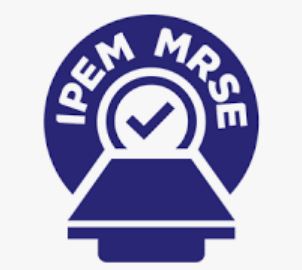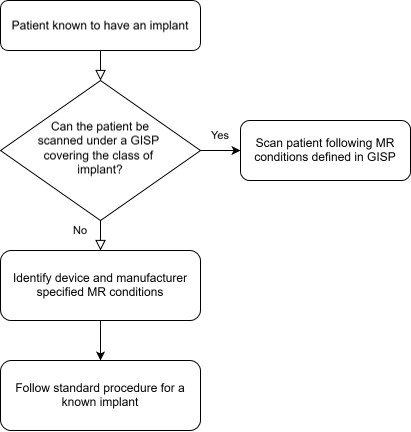15 July 2025
The BIR has multiple Specialist Interest Groups (SIGs) each with multi-disciplinary membership. We are very grateful for the work of each group which underpin our effectiveness. BIR members are encouraged to join and contribute to our SIGs. Each group helps develop and deliver educational events and webinars as well as contributing to national procedures and processes, working alongside our partners.
Below are some of the recent initiatives to which members of our MRI SIG have contributed to:
IPEM MRSE certificate of competence
All clinical MRI units are advised to appoint an MR Safety Expert (MRSE) to support and advise on matters of MR safety. To help ensure that individuals taking on the role of an MRSE have appropriate knowledge and experience, BIR and other professional bodies contributed to the development of the IPEM MRSE certificate of competence scheme [1]. This scheme requires candidates to demonstrate sufficient knowledge by passing the MRSE exam provided by the American Board of MR Safety (ABMRS) [2]. Members from BIR have contributed to developing international versions of the ABMRS exams as well as contributing to the move to electronically administered exams, which mean candidates can now book to sit an exam on a day that is convenience to them at one of several test centres across the UK. An additional requirement to provide a portfolio of examples to demonstrates sufficient experience is assessed by an IPEM MRSE panel.

GISPs
Another recent MR safety initiative has been the development of Generic Implant Safety Procedures (GISPs) that aim to define a process for managing patients with certain types of implants where the MR safety risks are low. This incorporates scope for an evidence-based risk-benefit decision to scan some groups of patients with certain types of medical implants under locally-approved conditions, without seeking to identify the exact make and model of the implant and subsequent assurance of MRI safety from the implant manufacturer. A multi-professional group [3] have developed guidance on a framework for developing GISPs [4] and are continuing to work towards generating a set of nationally agreed GISPs.

The GISP process occurs before the normal procedure of rigorous device identification and determination of manufacturer provided MR conditions. In appropriate cases, this can avoid delays associated with the labelled procedure.
MRI Safety E-learning
Finally, the e-learning MRI safety programme developed by BIR and other professional bodies continues to go from strength to strength. Hosted on the e-learning for healthcare platform, https://www.e-lfh.org.uk/programmes/mri-safety/, this is freely available to anyone working in the NHS or at a UK academic institution via a number of routes [5-7] and to others via the e-integrity platform [8].
- https://www.ipem.ac.uk/your-career/professional-registration/mrse-certificate-of-competence/
- https://abmrs.org/
- https://www.ipem.ac.uk/resources/mri/generic-implant-safety-procedures-gisps-task-and-finish-group/
- Ashmore et al. Br J Radiol (2025) Mar 1;98(1167):336-344 2025 https://pubmed.ncbi.nlm.nih.gov/39535863/
- Direct access via elfh website, https://www.e-lfh.org.uk/programmes/mri-safety/
- Via NHS electronic staff record, https://my.esr.nhs.uk/
- AICC links from organisations’ own learning management systems, https://portal.e-lfh.org.uk/home/aiccreport
- e-integrity platform, https://www.eintegrity.org/healthcare-course/mri-safety/